Dozens of migrant families booted from NYC shelter as 60-day notices come due
Jan. 9, 2024, 7:29 a.m.
City officials say migrant families with no place to stay can reapply for shelter at an intake center in Midtown.
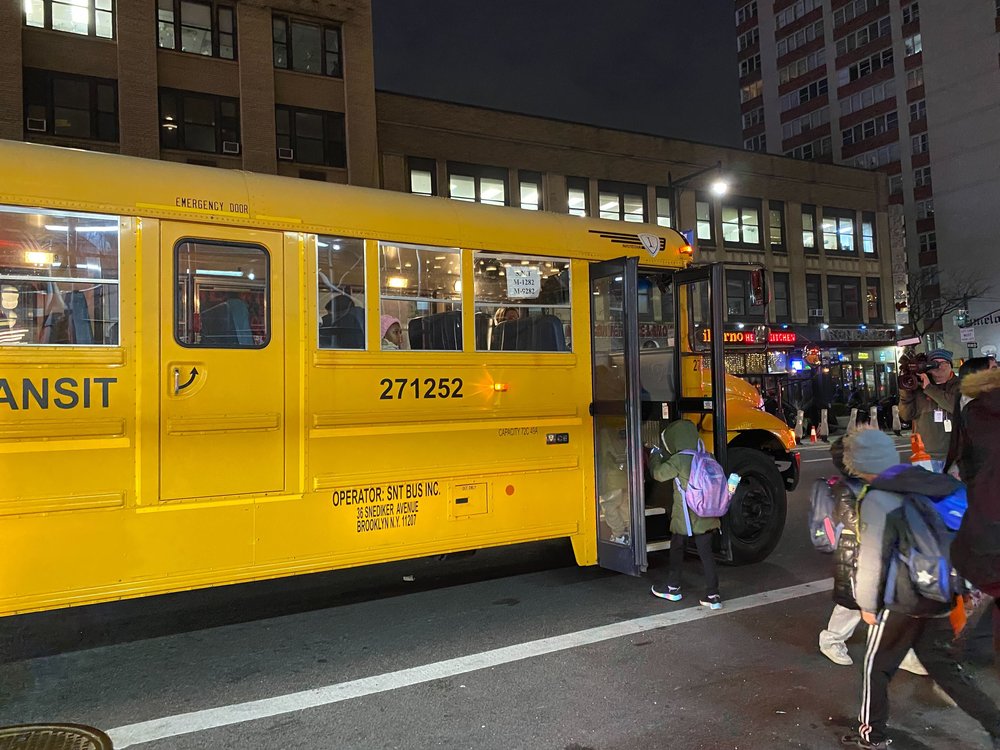
Migrant families and their children began packing up and leaving their homeless shelter at the Row Hotel in Midtown Manhattan on Tuesday morning, saying goodbye to the place they’ve called home since arriving in the city more than a year ago.
Dozens of parents were lined up outside the Row, one of the city’s emergency shelters for migrant families, around 6:30 a.m., waiting for school buses to take their children to school. Bundled up kids purchased chips and juice at a nearby newsstand as a police van was parked on the street. One family carrying bags and suitcases was seen jumping into an Uber.
Most families said they had received official 60-day notices to vacate the shelter by dates in January. Yajaira Abreu, who arrived from the Dominican Republic with her daughter last March, said she was moving to Boston to crash with a friend and that she had until Thursday to leave the hotel.
“My daughter tells me she doesn’t want to leave her friends,” Abreu said in Spanish.
Roughly 40 families are among the first wave of migrant families forced to leave the city’s care after Mayor Eric Adams began limiting shelter stays to 60 days last fall, citing the ballooning migrant population with more newcomers arriving each week. Families who haven’t found alternative housing will have to go to the Roosevelt Hotel in Midtown, the city’s main intake center for recent arrivals, to reapply for a shelter placement.
“We lived up to what is expected of New Yorkers: Being humane and stabilizing children and families,” Adams said at a press briefing Monday. “If we could just close the front door, we could get through this, but we can't close the front door.”
Parents and children carrying large suitcases started moving out of the Row around 8 a.m. Some headed to the Roosevelt to reapply for shelter, while two families told Gothamist they were moving in with family or friends in Philadelphia.
Ángel González, a 36-year-old chef from Venezuela, said he had lived at the Row with his two children for 11 months and that he was moving to Philadelphia to stay with a relative after receiving a work permit under immigration relief known as Temporary Protected Status.
“I’m thankful to New York, I’m thankful to this country, many doors have opened for me,” he said in Spanish as he lugged a massive red suitcase and headed for the train. “I’m very happy because they treated me well.”
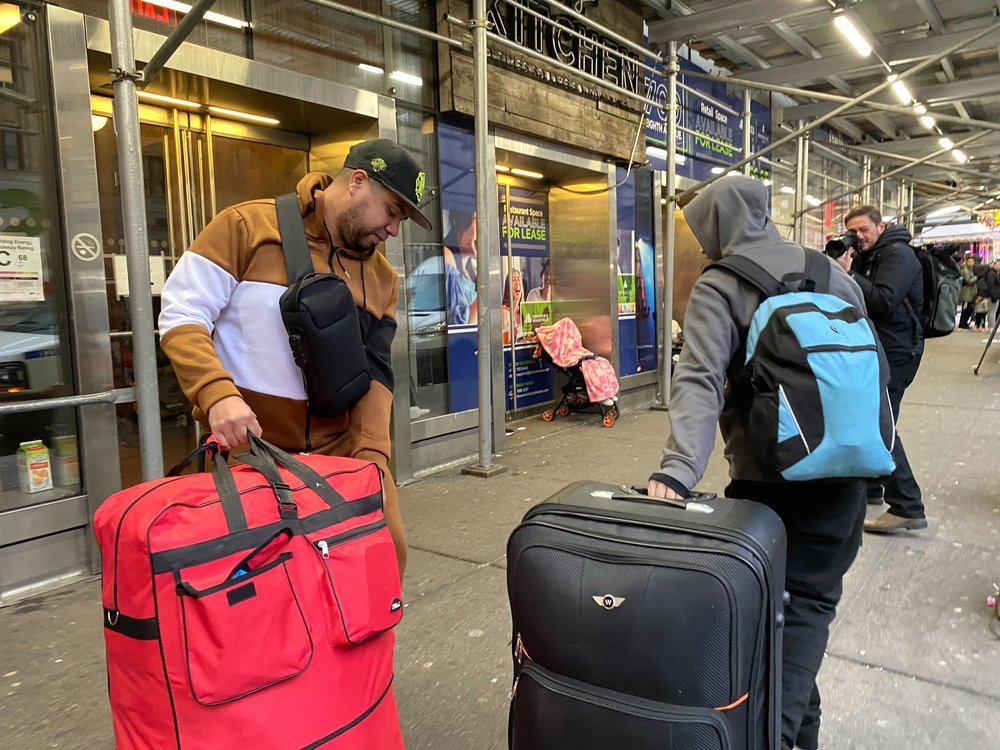
Angelica Hernández, also from Venezuela, said she was moving to Philadelphia to live with a family member after living at the Row for a year with her husband and her 6-year-old son. She said her son hasn’t gone to school since Dec. 22 because she thought they had to move out by Dec. 27, but then the city granted them a two-week extension.
“He’s a little sad because of his friends, his teachers, he started crying a little bit,” she said in Spanish, referring to her son. “It feels good [to have] a new opportunity to start over from zero.”
So far, the city has notified some 4,800 families in the city’s emergency shelters that they had 60 days to move out.
The policy is prompting concerns by some elected officials and immigration and housing advocates that migrant children will be upended from their schools and forced to move every two months, exacerbating a longstanding issue among children living in shelters whose education suffers from chronic relocation and attendance gaps. Education groups have warned the displacements will uproot the youngest migrants, potentially ripping them away from schools where they’ve found stability.
“Sixty days will also increase the amount of trauma our New York City kids will face, it’s not right,” Councilmember Rita Joseph said Monday at a rally against the policy. “Our youngest New Yorkers, those who are here to seek a better life with their families, should not be a political pawn in this administration.”
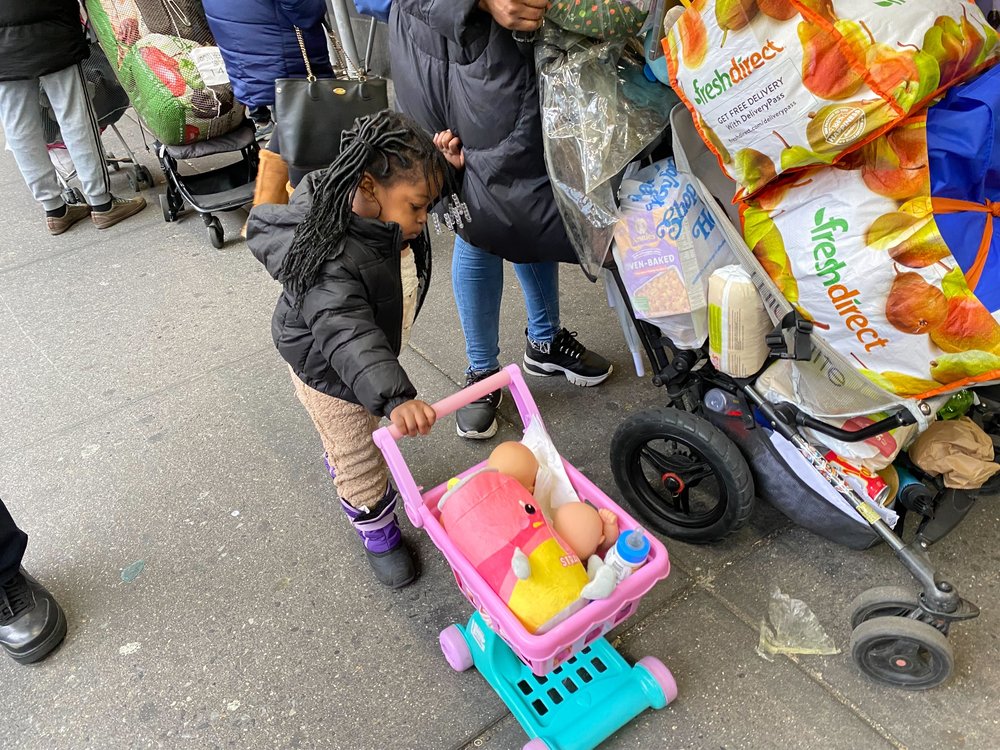
At the Roosevelt intake center, located a block from Grand Central Terminal, families who had come from the Row Hotel hurried inside with their belongings Tuesday morning.
"Mommy, it's cold!" cried Leydys Camilo's 4-year-old son, while her 12-year-old child stood by and her partner spoke with the guards. Camilo, a 32-year-old Dominican, and her family had been living in the city for a year before receiving notice to leave their shelter after 60 days.
Joana Rivas, 29, a Venezuelan migrant, arrived shortly after 9 a.m. and said she had stayed at the Row for four months. She opted for her 9-year-old child to skip school Tuesday because she wasn't sure where they would be staying that night.
"It's difficult because I had to leave to move forward," said Rivas, as she waited for a new shelter placement. "But unfortunately that's how the situation is. It's difficult for many migrants."
Councilmember Gale Brewer, a Democrat from Manhattan who chairs the Council’s oversight and investigations committee, stopped by the Roosevelt Hotel to survey the scene.
"I feel so bad for these families," she said. “They have kids with them?" That means they're out of school today. That's like a crime."
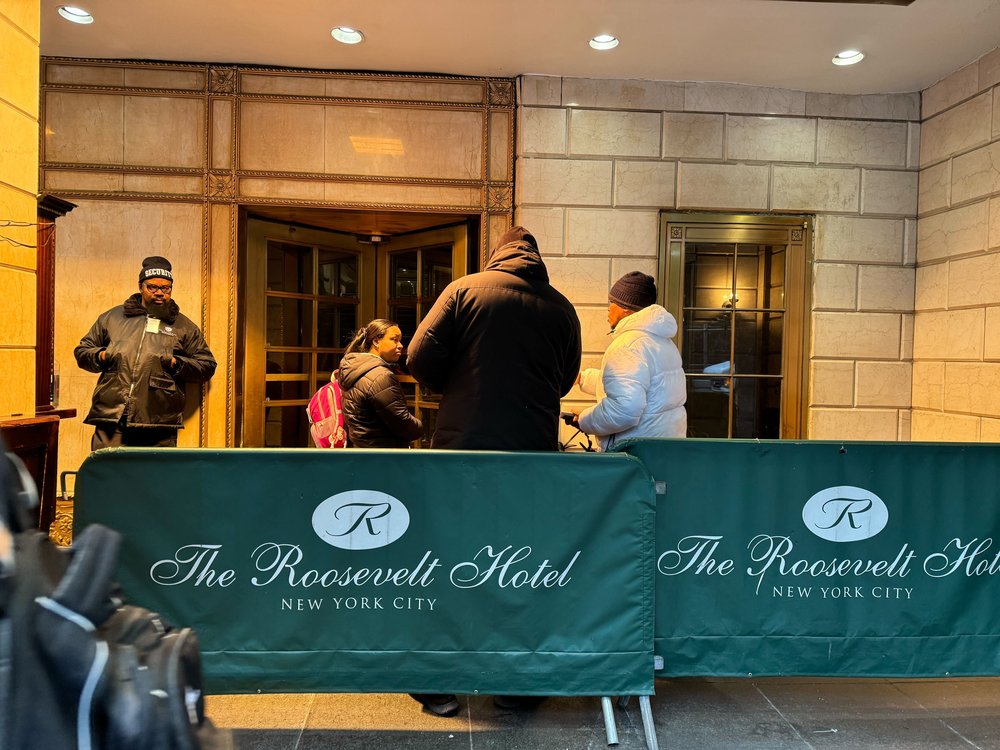
Opponents of Mayor Adams' shelter limits argue their purpose is to make conditions unbearable, compelling migrants to leave the shelter system or the city altogether.
“The 60-day rule is one thing and one thing only: harassment,” said Christine Quinn, CEO of WIN, which provides shelter for women and families, during Monday's rally. “This rule is being put in place because the administration has failed to develop or implement a holistic plan to house and support the asylum-seekers. There is no leadership coming out of City Hall.”
More than 66,000 migrants are currently living in city shelters — most of them families with children — according to Adams’ office. The cost of caring for the migrants is about $396 a night, city data shows.
Non-migrant homeless families are subject to shelter transfers by the Department of Homeless Services and are often forced to change schools because their new commutes are too long. That’s despite federal rules that say homeless children have a right to remain at their school even if they relocate to another shelter.
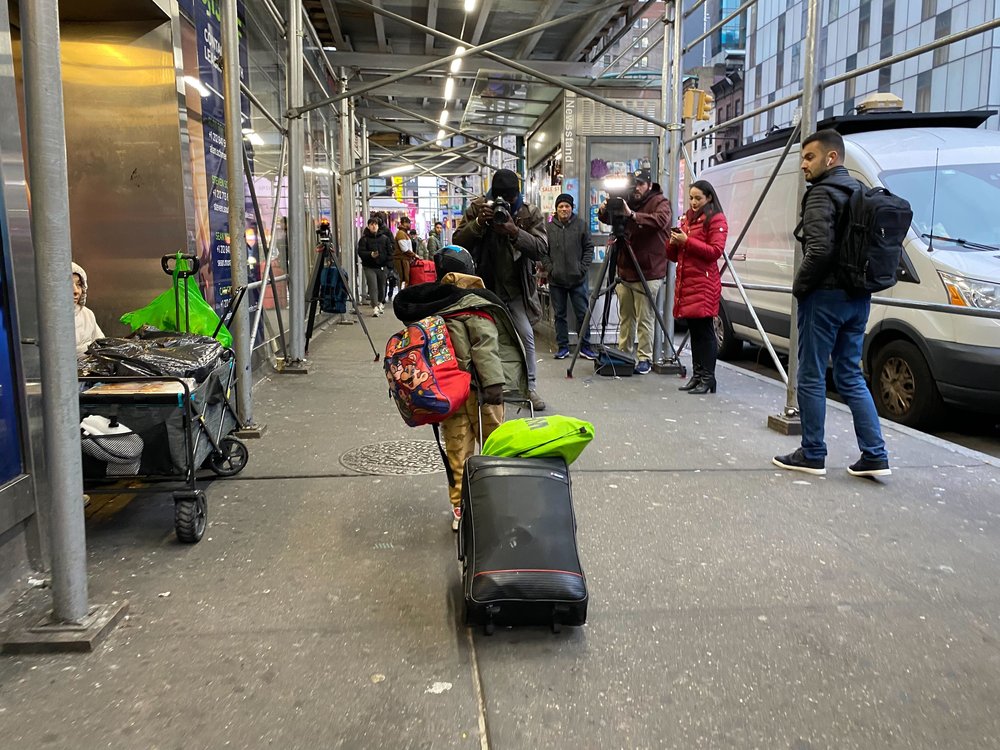
Ted Long, senior vice president at the city’s public hospital system that operates more than a dozen migrant shelters and the Roosevelt Hotel intake center, said Monday that staff have met more than four times with each family moving out of the shelters. He added that staff would prioritize placing families with elementary-age children in hotels near the schools where they already attend and that those rooms have already been set aside.
Families will be able to send their children to school Tuesday while they reapply for shelter, Long said.
City Hall officials say about 60% of the migrants who have been in the city’s care since 2022 have left the shelter system. Last year, the city implemented a 30-day shelter limit for migrant adults, which partly resulted in migrants waiting hours and days outside a reticketing center in the East Village, hoping for a new shelter bed — sometimes in freezing temperatures.
“These children and families have been through so much, so we're not talking about destabilizing them,” Deputy Mayor Anne Williams-Isom said at the City Hall press briefing Monday. “And I just want to flip that premise. What we are trying to do is actually stabilize them and make sure that they have what they need and make sure that those families just coming to us at the front door also have an opportunity.”
But migrants forced from the Row Hotel on Tuesday morning expressed uncertainty and fear about where they would land next.
Bianca Guzman, a 36-year-old Venezuelan, said her family — including her four children, ages 3, 8, 9 and 13 — had stayed at the Row for a year because she and her husband couldn't find jobs and lacked work permits.
"The kids are a bit confused now," Guzman said, gesturing to one of her daughters, who was wearing a puffer jacket and knit hat while clutching a Hello Kitty pillow. "I just tell them it’s not a stable place we can stay now.”
Maria Quero, a 26-year-old Venezuelan who is 35 weeks pregnant with her first child, a boy, said she’d been staying at the Row since August, after losing her job in Venezuela due to political persecution. She said she and her husband were earning $6 a month there and decided they needed to leave.
“It’s very stressful, a lot of anxiety not knowing what will happen,” she said in Spanish, adding she doesn’t know anyone in the United States with whom she could stay. “My pregnancy was very calm, but these last few weeks it’s been a lot of tension, headaches.”
This post has been updated with additional information.
NYC issues 1,500 migrant families 60-day notices to leave shelter or reapply Migrant students face schooling uncertainty as NYC gives families 60 days to exit shelter Homeless advocates blast NYC for allowing some migrants to sleep outside in 20-degree weather Migrant families with kids will have to leave NYC shelters starting this week Migrant students face schooling uncertainty as NYC gives families 60 days to exit shelter